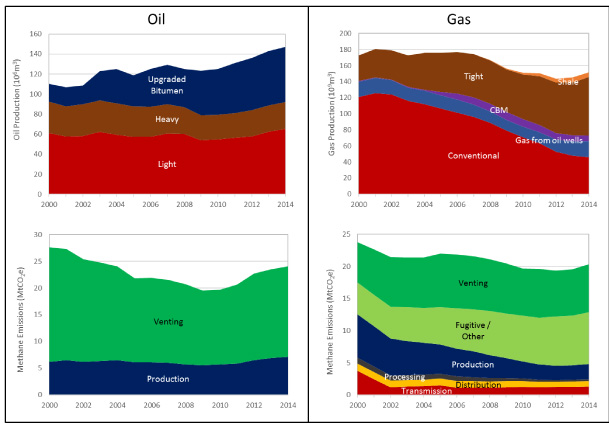Canada, the US and Mexico agreed over the summer, as part of a general commitment on climate, to reduce short-lived but powerful climate pollutants, such as methane. However, since 2009, there has been a 23% increase in methane emissions from oil production and a 3.4% increase in intensity. And while methane emissions from natural gas appear more stable, rising tight and shale gas production has driven greater fugitive emissions, the publication EnerInfo Industrial from Simon Fraser University reports.
 Canadian oil and gas production (NEB, 2016) and methane emissions (ECCC, 2016)
The oil and gas sector is already heavily regulated and the number of actors in the sector is small, so that additional suitable, flexible regulation can be imposed without being burdensome on the industry, the publication argues. A carbon price could also help spur innovation, it says.
Canadian oil and gas production (NEB, 2016) and methane emissions (ECCC, 2016)
The oil and gas sector is already heavily regulated and the number of actors in the sector is small, so that additional suitable, flexible regulation can be imposed without being burdensome on the industry, the publication argues. A carbon price could also help spur innovation, it says.
The international agreement, by Prime Minister Trudeau, President Obama and Mexican President Peña Nieto, is part of the Leaders’ Statement on a North American Climate, Clean Energy, and Environment Partnership made over the summer.
The original story is from the Canadian Industrial Energy End-use Data and Analysis Centre (CIEEDAC) at Simon Fraser University. www.cieedac.sfu.ca.
